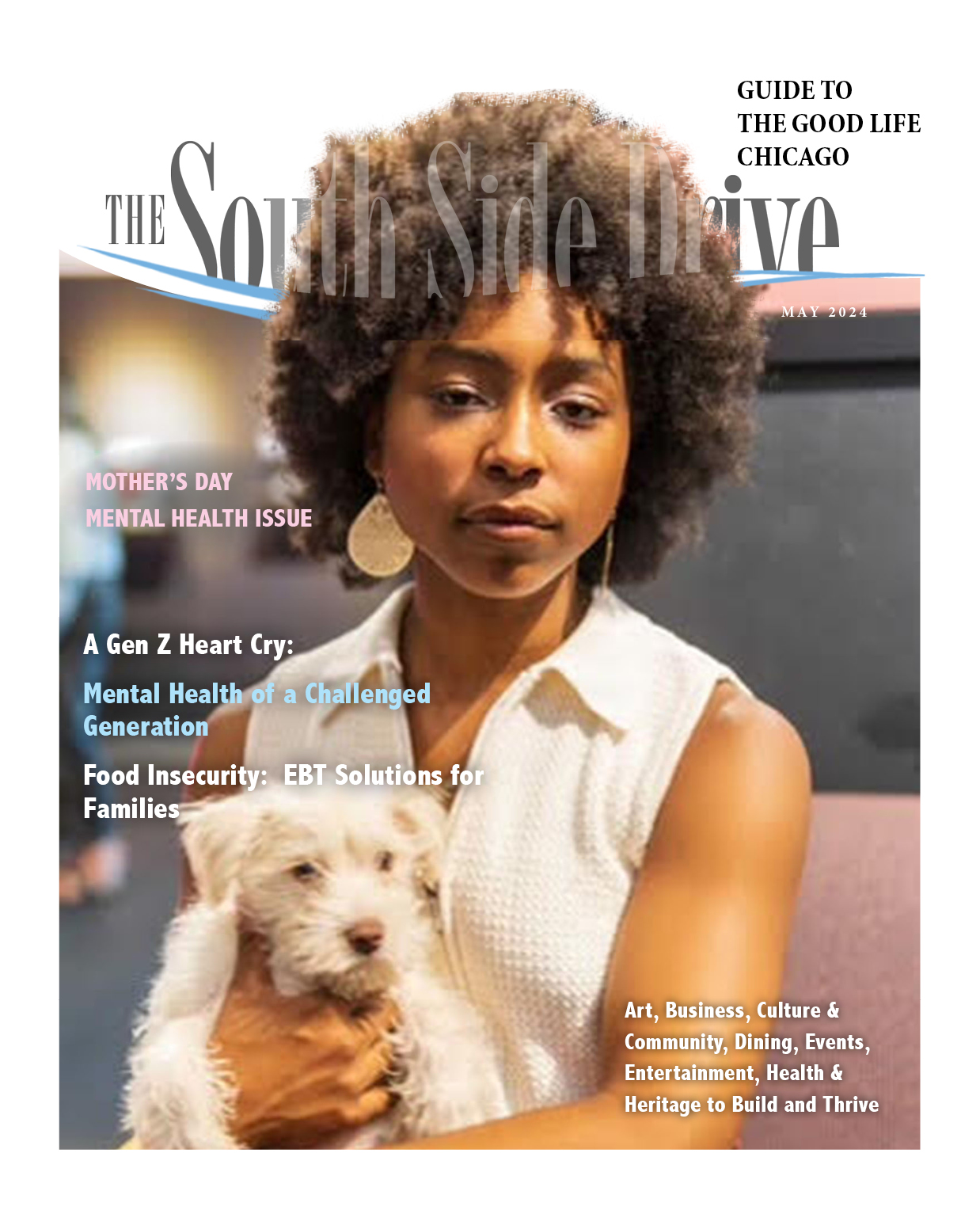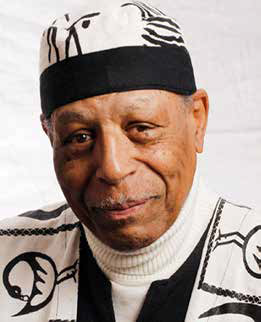On November 19 of every year, International Men’s Day is celebrated in the United States and 79 other countries throughout the world.
Although International Men’s Day celebrates all men of every ethnicity and nationality, regardless of religion, race, or age – it is especially important to recognize and celebrate Black men during this occasion as they have been undervalued and disrespected for centuries.
I can recall about two decades ago when Black men were considered an endangered species. Going back even further, the white man, white woman, and Black woman were historically positioned above the Black man.
According to a report by the Chicago Department of Public
Real Men Charities Honors International Men
Health, from 2012 to 2017, the life expectancy gap between Black residents and non-Black residents grew from 8.3 years to 9.2 years. Black Chicagoans on average live 71.4 years while non-Black residents live 80.6 years. The report cites five main factors: chronic diseases, homicide, infant mortality, opioid overdoses and HIV, flu or other infections..
Besides Black life expectancy, there are other serious issues that need to be discussed, and International Men’s Day is a perfect time to discuss those issues, such as financial health, keeping children secure, fatherhood, and mentorship. All of this and more will be discussed at the Real Men Charities’ celebration of International Men’s Day at the Quarry, 2423 East 75th Street, on Friday, November 19.
Highlighting the event will be the real men that Real Men Charities are honoring, who are as follows.
Professor Shaffdeen Adeniyi Amuwo, a Clinical Associate Professor Emeritus at the University of Illinois at Chicago (UIC). Professor Amuwo served in many meaningful positions at UIC prior to his retirement. He served as Clinical Associate Professor of Public Health Sciences, Associate Dean for Students and Alumni Affairs, Associate Dean for Community and Governmental Affairs, and Associate Dean for Urban Health and Diversity Programs.
After Professor Amuwo officially retired, UIC would not let him stay in retirement, rehiring him for 10 additional years to conduct research and pursue grant funding activities. He finally left to devote more time to Nigerian affairs, both in the diaspora and in Lagos State. He currently serves as the Chairman of the Board of Trustees of the Nigerian Islamic Association in Chicago. He is a member of .the Board of Trustees of the Light of Islam in Harvey, Illinois and a member of the Lagos State University Governing Council. Professor Amuwo has also served as a consultant and initiator for establishment of the Center for Disease Control and Prevention for Lagos State Government.
Salim Muwakkil, Senior Editor of In These Times Magazine, host of WVON-AM’s Salim Muwakkil Show and Muwakkil’s World Podcast. A graduate of Rutgers University, former Black Panther member and former Nation of Islam activist, Mr. Muwakkil was news writer for the Associated Press, copy editor for Muhammad Speaks and its successor, Bilalian News, where he became managing editor, first Black journalist for Associated Press, contributing columnist for the Chicago Sun-Times, the Chicago Tribune, the Reader, and contributing writer to In These Times, the New York Times, Washington Post, the Reader and other publications.. Salim also serves as board member for the Progressive Media Project and is a co-founder of the widely acclaimed, award winning news organization, “Democracy Now!” Muwakkil wrote the text for the book, Harold! Photographs from the Harold Washington Years and also contributed to five other books. He has provided political commentary for various other radio and television shows, and served as adjunct professor at the Art Institute of Chicago and Northwestern University.
Muwakkil is the recipient of numerous awards and honors including the 2004 Lillian Award for Excellence in Journalism – Delta Signma Theta Sorority, 2001 Studs Terkel Award for Journalistic Excellence – Chicago-based Community Media Workshop, 1997 Black Rose Achievement Award – League of Black Women, and 1994 Top Ten Media Heroes – Institute of Alternative Journalism, and the Orchid Award for Political Excellence – the Top Ladies of Distinction.
Harold Pates is an educator and cultural activist. Pates taught at Fuller Elementary School and Forestville Elementary School and was assistant principal of Du Sable Upper Grade Center from 1964 to 1968. He served as a counselor at DuSable Upper Grade Center and High School and as a guidance counselor for the Hyde Park Evening School. As teacher and administrator, Pates joined Lawrence Landry, Lu and Jorja Palmer, Reverend
C.T. Vivian, Lorenzo Martin, Bobby E. Wright, and others in agitating for African American concerns in the Chicago Public Schools.
In 1968, Pates joined Loop College where he became director of the Admissions Department. Pates also taught at Loyola University, George Williams College, Northeastern Illinois University, and Concordia College. He also helped plan the first Upward Bound Program. Appointed dean of career programs at Malcolm X College in 1981, Pates moved on to Kennedy-King College as a dean in 1983. In 1986 Pates was named president of Kennedy-King College, serving until 1997. At Kennedy-King, Pates provided access for cultural and civic organizations and events at an unprecedented level.
Active in efforts to generate an African version of the history and culture of Africa and to infuse the Black experience into the educational system, Pates was a founder of the Chicago Communiversity and the Association of African Educators, with Anderson Thompson, in the late 1960’s. He was a founding member of the Kemetic Institute, the Association of Black Psychologists, the National Association of Black School Educators, the Black United Front, the Chicago Task Force for Black Political Empowerment, the Association for the Study of Classical African Civilizations, and the Harold Washington Institute.
Useni Eugene Perkins is a distinguished poet, playwright, and youth worker. In 1966, he became the executive director of the Better Boys Foundation of Chicago, a social agency involved in community, social, educational, and cultural development. He authored the 1976 book Home is a Dirty Street: The Social Oppression of Black Children.
In 1982, Perkins became an executive consultant with INESU Consultants, where he stayed for two years. He was still very active in writing, penning several sociological books on African American youth, as well as publishing books of poetry and authoring various plays that were produced in theaters in Chicago.
In 1986, he became the social director for the Chicago Urban League and two years later, became the chief executive officer of the Urban League of Portland, Oregon. Returning to Chicago in 1990 as the interim president of the DuSable Museum of African American History, Perkins founded the Association for the Positive Development of African American Youth, in which he served as president and became the project director of the
Family Life Center at Chicago State University. Best known for his book, Hey Black Child, Perkins authored many other books, including Explosion of Chicago’s Black Screen Gangs – 1900 to Present and his most recent title, Rise of the Phoenix.
Julian Roberts is a Board Member at Africa International House (African Festival of the Arts), the largest festival in the Midwest featuring vendors, performers, and food from all over the world. Attended by over 200,000 people and supported by the Mayor of Chicago and President Barack Obama, the festival takes place annually during Labor Day Weekend from Friday to Monday.
Julian Roberts is also CEO and President at Cloud Navigation, Inc. which is dedicated to guiding, advising, supporting and developing superior technology solutions for business. The organization specializes in leveraging the Internet as a cost-effective and high availability platform for achieving superior business impact.
Roberts is former owner of Amazon Natural Look Academy. He studied MS Information Science at the University of Chicago, Multi-Variant Analysis at the New School for Social Research, and Comparative Religion and Philosophical Systems at Kemetic Institute of Carruthers Center for Inner City Studies.
P. “Patrick” Saingbey K. Woodtor is the founder, president and executive director of the not-for-profit Africa International House USA, Inc. and executive producer of the Annual African Festival of the Arts (AFA). In 2018, the AFA’s 29th year, the Festival attracted over 200,000 attendees from across the globe to Chicago for the four-day celebration of the African Diaspora. A prominent Chicago business leader, WGN-TV’s Minority Business Report has named Woodtor on several occasions “Minority Businessman of the Week.” Additionally, Woodtor’s commitment to the arts, culture, heritage, and African tourism has spanned decades. In 1989, he co-founded (with his late Wife, Dr. Delores “Dee” Parmer Woodtor) and served as Executive Producer for the first African Festival of the Arts in Chicago. And, in 1995, he began his tenure as head of Africa International House USA, Inc. Woodtor has received many public Awards, including “Award for Art & Culture” “African Man of the Year” (United African Organization – 2004); “Opening The Door to New Beginnings” (Executive Leadership Council – 2006) “Dedication & Success” (National Association of Market Developers – 2004); “Contribution in the Success of the Awareness Task Force” (AT&T – 1991); just to name a few.






